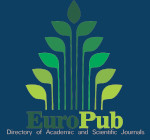Educational and Technological Tools in the Prevention of Parasitic Infections in Youth and Adult Education
DOI:
https://doi.org/10.48017/dj.v10i2.3193Keywords:
Education, Parasitology, Playful activitiesAbstract
Youth and Adult Education (EJA) seeks to include individuals who have dropped out of school by providing them with educational opportunities. In this process, the introduction of teaching tools and playful activities is essential, as it awakens interest and understanding for learning. The integration of digital technologies in education is seen as a way to transform the learning process, providing more interactive and effective methods, with emphasis on digital games as pedagogical tools that offer meaningful learning experiences. A study with EJA students at a municipal school in Maceió, Alagoas, between July and August 2023, explored educational methods in teaching intestinal parasites. The activities, including the construction of models and educational games, not only aroused the interest of students, but also promoted awareness of preventive measures, such as hygiene, highlighted by 33% of students. In the quiz applied, correct answers varied between 36,5 and 59,6% of participants, and 67% of students participated in the educational game, showing interest in these playful activities. The research highlighted the importance of innovative and practical educational approaches, highlighting the role of the teacher and the school, as transformative agents, as well as stimulating learning and developing skills in students.
Metrics
References
Campos, L. M. L., Bortoloto, T. M., & Felício, A. K. C. (2003). A produção de jogos didáticos para o ensino de ciências e biologia: uma proposta para favorecer a aprendizagem. Caderno dos Núcleos de Ensino, 47, 47-60.
Creswell, J. W. (2018). Research Design: Qualitative, Quantitative, and Mixed Methods Approaches (5th ed.). Thousand Oaks, CA: Sage Publications.
Creswell, J. W., & Creswell, J. D. (2017). Research Design: Qualitative, Quantitative, and Mixed Methods Approaches (4th ed.). Thousand Oaks, CA: Sage Publications.
da Cruz, MTP, Moura, RF dos S., Pereira, GG, Matos, YMLS de, Antunes, DF, Santos, MAF dos, Silva, VL da, Costa, FAP, Pereira, ALG, & Almeida-Bezerra, JW (2024). Educação sanitária como prática de prevenção de parasitoses. CONTRIBUCIONES A LAS CIENCIAS SOCIALES, 17 (3), e4195. https://doi.org/10.55905/revconv.17n.3-063
Feitosa, M. M. D. S. (2020). Políticas de gestão e gerenciamento integrados dos resíduos sólidos urbanos no município de Água Branca–AL.
Fundação Nacional de Saúde. (2019). Manual de Saneamento (5ª ed.). Ministério da Saúde. repositorio.funasa.gov.br/handle/123456789/506.
Heberle, K. (2011). Importância e utilização das atividades lúdicas na educação de jovens e adultos.
Minussi, M. M., de Souza Wyse, A. T., & Belo, O. M. O. Aplicação de um jogo educacional para disciplina de ciências em uma escola.
Nunes, M. J., & Lewandowski, H. (2014). O estudo das parasitoses helmínticas a partir da realidade dos educandos. Cadernos PDE, Paraná, s.p. [ISBN]
Oliveira, C. de, Moura, S. P., & Sousa, E. R. (2015). TICs na Educação: A utilização das tecnologias da informação e comunicação na aprendizagem do aluno. Pedagogia em Ação, 7(1), 75-95.
Paula, B. H. de, & Valente, J. A. (2016). Jogos digitais e educação: uma possibilidade de mudança da abordagem pedagógica no ensino formal. Revista Iberoamericana de Educación.
Pinheiro, R. C., & de Oliveira, J. R. (2020). A utilização de jogos digitais educacionais na educação de jovens e adultos. Texto Livre, 13(3), 200-223.
Santos Vale, R. M. dos. (2022). Tecnologia educacional para a EJA é possível?. Revista Brasileira da Educação Profissional e Tecnológica, 2(22), e13556.
Saunders, M., Lewis, P., & Thornhill, A. (2019). Research Methods for Business Students (8th ed.).
Harlow, UK: Pearson Education Limited.
Silva, R. A. da. (2016). Jogos lúdicos no processo de ensino-aprendizagem das quatro operações na educação de jovens e adultos. Rio Grande do Norte.
Siqueira, R. R., Teixeira, C., & Pereira, F. L. (2018). A corrida dos vermes: Proposta e um jogo didático para o ensino de ciências. Ciência em Tela, 11(2), 1-14.
Sousa, A. C. M., Bocardi, M. I. B., & Cardoso, T. L. (2015). Hábitos de vida como fator desencadeante a parasitoses intestinais. Ideias & Inovação, 2(2), 77-92.
Souza, J. L. N., Silva, C. G., Júnior, E. L. R. S., & Zaros, L. G. (2016). Jogos e o ensino de Parasitologia. In Anais do III CONEDU, Rio Grande do Norte. https://www.editorarealize.com.br/artigo/visualizar/21301.
Downloads
Published
How to Cite
Issue
Section
License
Copyright (c) 2025 Luciana Biggi, Vanessa Doro Abdallah, Leila Maria Biggi de Souza Cavalcante, Luana Biggi de Souza, Lauro Maia Gomes Braga, Rodney Kozlowiski de Azevedo

This work is licensed under a Creative Commons Attribution 4.0 International License.
The Diversitas Journal expresses that the articles are the sole responsibility of the Authors, who are familiar with Brazilian and international legislation.
Articles are peer-reviewed and care should be taken to warn of the possible incidence of plagiarism. However, plagiarism is an indisputable action by the authors.
The violation of copyright is a crime, provided for in article 184 of the Brazilian Penal Code: “Art. 184 Violating copyright and related rights: Penalty - detention, from 3 (three) months to 1 (one) year, or fine. § 1 If the violation consists of total or partial reproduction, for the purpose of direct or indirect profit, by any means or process, of intellectual work, interpretation, performance or phonogram, without the express authorization of the author, the performer, the producer , as the case may be, or whoever represents them: Penalty - imprisonment, from 2 (two) to 4 (four) years, and a fine. ”















.png)




